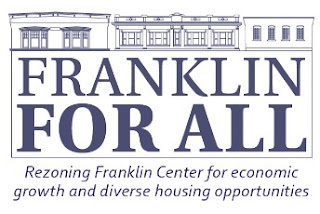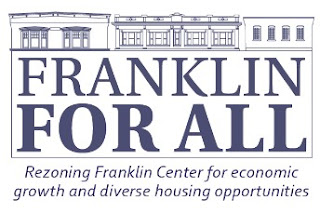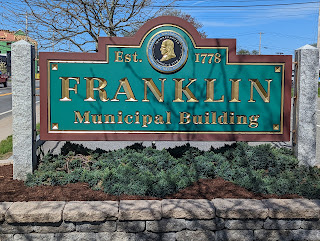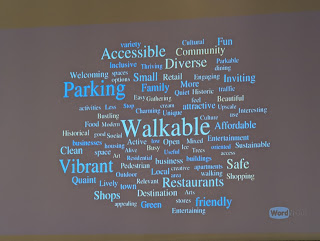More than 20% of K-12 schools failed to report any vaccination rate data to the Department of Public Health for 2023-24; Rausch’s Community Immunity Act provides systemic infectious disease prevention solutions
Crafted by the Metropolitan Area Planning Council (MAPC) using vaccination data published by the Department of Public Health (DPH), the maps show an average of 21% of K-12 schools that failed to report any vaccination rate data to DPH whatsoever for the 2023-24 school year. That nonreporting rate jumps to 41% for early education programs.
Among the schools and programs that did report vaccination data to DPH, as can be seen on the maps, a concerningly high number lack adequate community immunity against vaccine-preventable diseases, including 21% of kindergartens with insufficient protection against measles, 34% of middle schools with insufficient protection against whooping cough, and 37 early education programs with insufficient protection against polio, more than double the number from the previous school year. Adding concern is the geographic overlay among nonreporting programs and programs with high rates of under- or unimmunized children.
The worrisome data goes beyond what the maps can even hold. From early education to colleges, DPH is missing vaccination data from nearly 2,000 schools and programs. Among the reporting K-12 schools and early education programs, 1,100 enrolled at least five percent of students who were missing at least one vaccine but did not have an immunization exemption on file, representing nearly half the reporting schools and programs in the state. Almost 400 schools, programs, and colleges enrolled students with no vaccination records whatsoever.
“It is embarrassing and dangerous that five years after the onset of COVID, we still have not fixed the serious problems in our state’s immunization infrastructure laws,” said Senator Becca Rausch. “We have a United States Health and Human Services Secretary who can barely bring himself to even mention measles vaccination in the midst of a measles outbreak, and in the same breath spewed medical misinformation. If we hope to make any advancements at all in protecting people’s health and safety, it will only happen at the state level. We have obvious, systemic flaws in Massachusetts that require system-focused solutions, which is exactly what my Community Immunity Act provides. There is no good reason to continue failing our children, families, medically vulnerable neighbors, and communities by failing to pass this bill into law.”
Current state statutory law governing immunization requirements and exemptions for early education programs, schools, and summer camps is incomplete and confusing, yielding disparate implementation and serious public health gaps. Rausch’s Community Immunity Act supports student and public health by ensuring statewide data collection, improving the availability and accessibility of that data for Massachusetts residents, centralizing and standardizing medical and religious exemption processes and protocols, and engaging and informing communities during conditions of elevated risk of infectious disease. The legislation has been endorsed by many medical professionals and organizations representing doctors, nurses, school personnel, social workers, and individuals with disabilities.
“The first principle in addressing public health challenges is to have good data,” said Marc Draisen, Executive Director of MAPC. “Local public health professionals are at the front lines in our cities and towns every day. They need standardized and complete data to understand vaccination rates throughout the Commonwealth. This data will help them to deliver services more effectively and build stronger community relationships. It will help public health staff, parents, and schools to make the very best choices for our kids and our communities.”
“Vaccines play a critical role in keeping our communities healthy,” said Mass General Brigham, which has endorsed the Community Immunity Act. “We encourage patients to speak with health professionals about the benefits of vaccines in order to make informed decisions that not only protect themselves but those community members who are at increased risk for severe disease. More comprehensive public reporting to DPH would be a helpful tool for communities to better understand the risk factors of certain communicable infectious diseases.”
“As a pediatric rheumatologist who treats children with autoimmune diseases, my patients are immunocompromised and rely on their communities to help keep them safe from infectious diseases,” said Dr. Mindy Lo, MD, PhD, Attending Physician at Boston Children's Hospital. “Concerned parents ask me about how to protect their kids from the outbreaks we are hearing about in the news. The reality is that in many parts of the state, we do not have adequate data to inform them about these risks. The Community Immunity Act aims to change that by providing more transparent vaccination data consistent reporting requirements, and I wholeheartedly endorse this bill in support of my patients.”
“With the federal government recklessly providing a platform to normalize anti-vaccine rhetoric and long-debunked myths about their safety and efficacy, we should be preparing for the fallout health officials are anticipating nationwide,” said American Federation of Teachers (AFT) Massachusetts President Jessica Tang. “In other states, we're seeing the spread of vaccine-preventable infectious diseases, particularly amongst school aged children, and the first death from a disease that has been eradicated for over a decade. We need a comprehensive system in place to provide families with the information they need to make informed decisions regarding their health and wellness, to equip communities with the tools to engage in meaningful outreach, and to bring about a truly standardized approach to religious and medical exemptions. If there was ever a time for the state to make sure we have the infrastructure to track and prevent infectious diseases, it’s now.”
“As a school nurse in Massachusetts, as well as a mother and grandmother, I support the passage of the Community Immunity Bill for several reasons,” said Cathryn Hampson, MSN, RN, NCSN. “First, it does not remove the right of a parent to choose a religious exemption but rather transfers the responsibility for reviewing and processing exemption documents from camps and schools to the public health department. No longer will school and camp nurses have to sift through notes and scraps of paper (or napkins with peanut butter smears!) trying to decide if it meets the requirements for a religious exemption. Those documents will be submitted to DPH and DPH will provide a certificate of exemption. It also fills in the gaps and removes conflicting components of current regulations, clarifying vaccination requirements, defining reporting expectations, and providing a better understanding of our vaccination status throughout the state. These are critical if we want to continue to ensure the health and safety of our children.”
“This legislation is critical to social workers,” said Rebekah Gewirtz, Executive Director, National Association of Social Workers, MA Chapter. “By promoting herd immunity and supporting vaccination efforts, the Community Immunity Act will have a significant positive impact on the most vulnerable – small children, those with disabilities, and immunocompromised people across Massachusetts. We face serious threats to our public health at the national level, so it’s more important than ever to pass this bill at the state level, and to do so right now.”
“Improving vaccine access and utilization supports the health of all residents of Massachusetts, in particular people with disabilities and individuals with compromised immune systems,” said Sadie Simone, MPH, Executive Director of the MetroWest Center for Independent Living. “The Community Immunity Act will accomplish this through increased data collection, streamlining exemptions for students and providing local, community level immunization rates to support public health engagement. Developing comprehensive, local immunization data will help parents of children with disabilities make informed decisions about their child’s risk of exposure to dangerous yet preventable diseases.”
Now serving her fourth term, State Senator Becca Rausch (D-Needham) represents 11 towns that comprise the Norfolk, Worcester and Middlesex District: Bellingham, Dover, Franklin, Medfield, Milford, Millis, Needham, Norfolk, Plainville, Sherborn, and Wrentham.
Following the DPH data link provided above, I found the Kindergarten Immunization results for Franklin schools.
 |
| Kindergarten Immunization results for Franklin schools |







